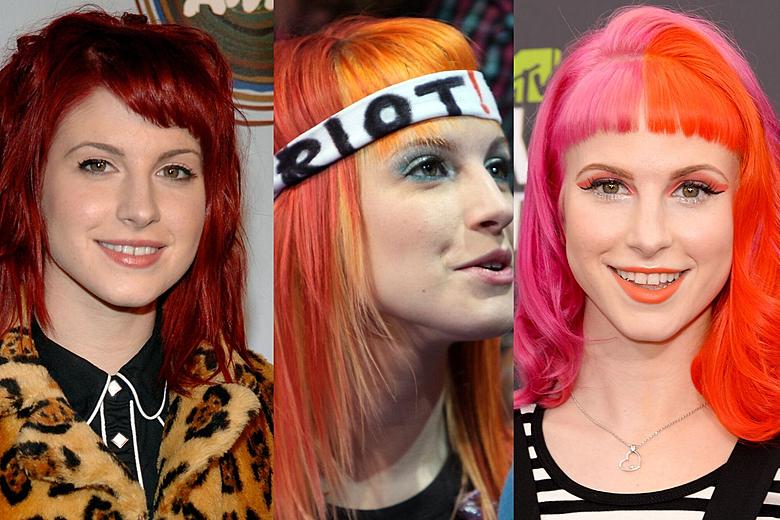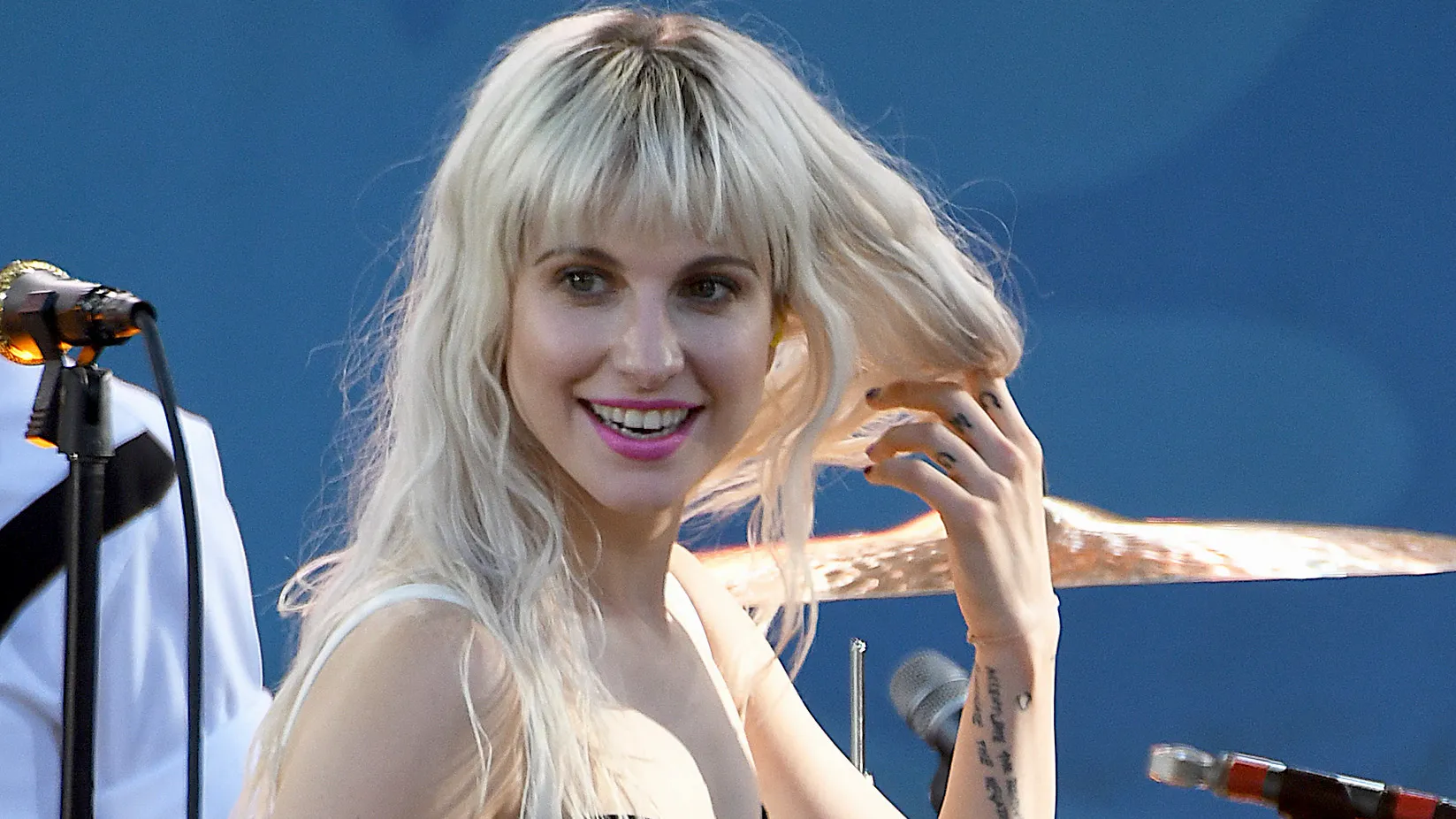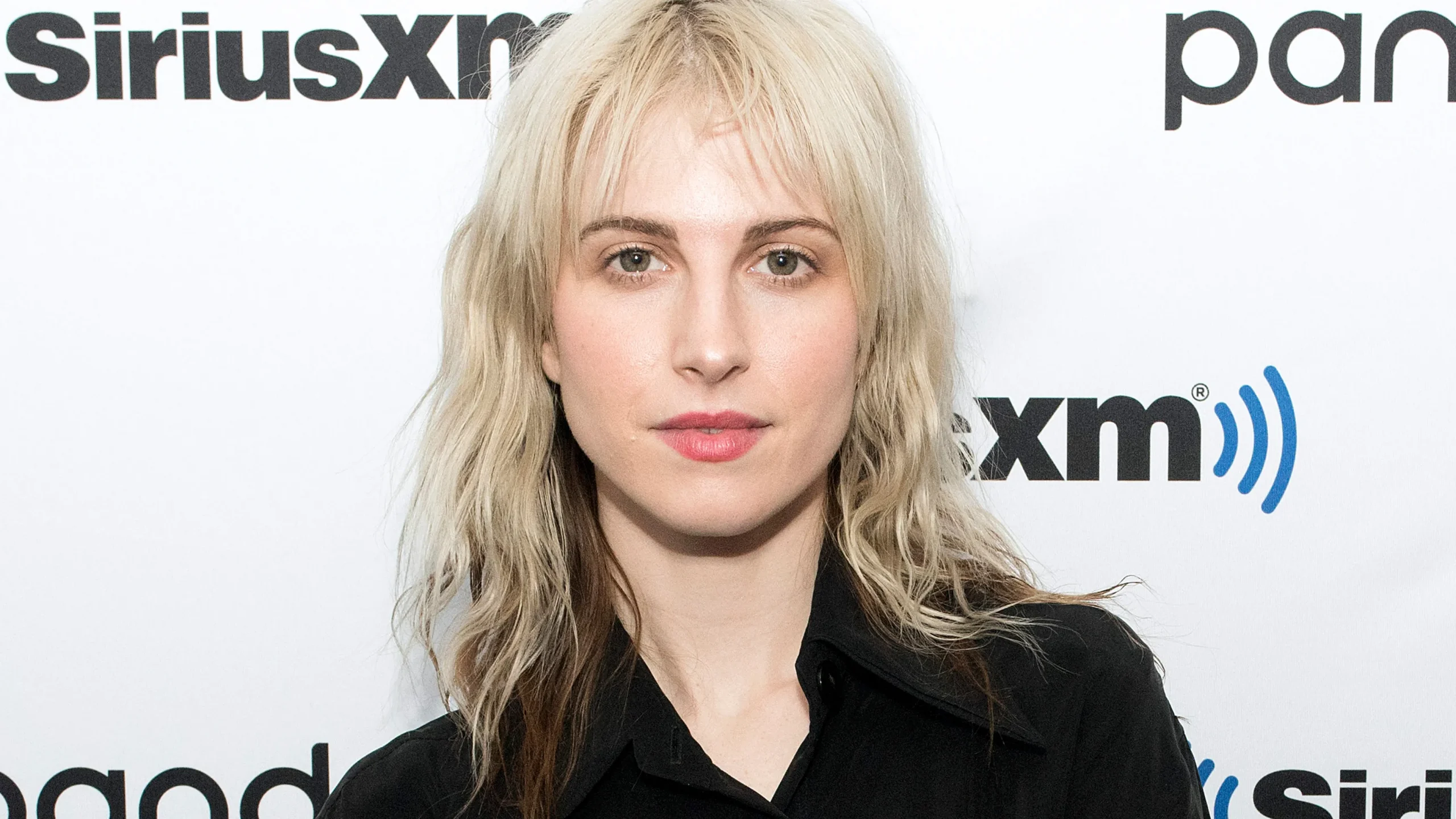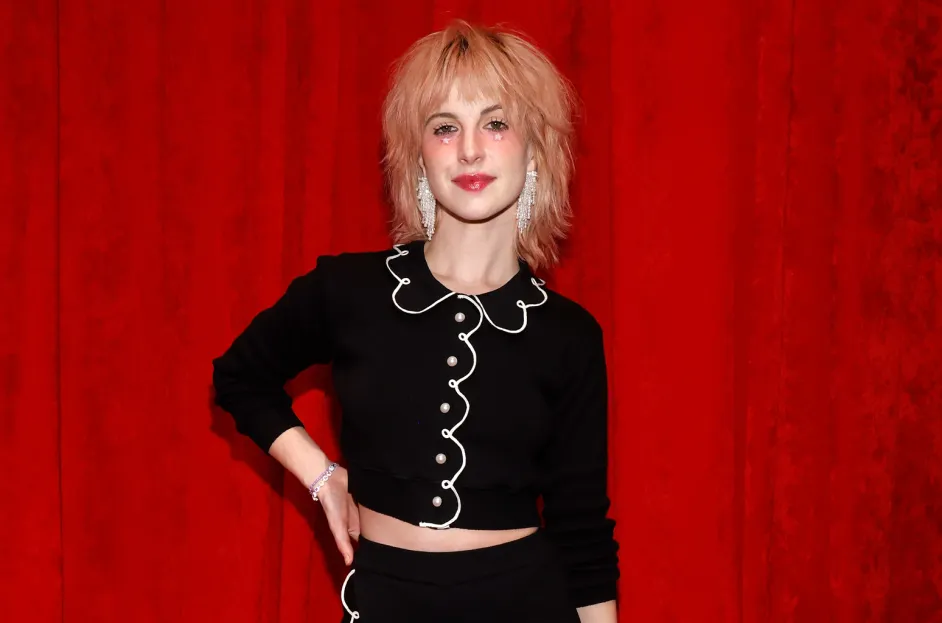Hayley Williams

Who is Hayley Williams?
Born: Hayley Nichole Williams, December 27, 1988, Meridian, Mississippi.
Overview: Hayley Williams is the electrifying lead singer, primary songwriter, and driving force behind Paramore, a pop-punk/emo band formed in 2004 in Franklin, Tennessee. Known for her vibrant vocal range, fiery stage presence, and introspective lyrics, Williams has evolved from a teen punk icon to a versatile artist blending pop, rock, and alternative sounds. Beyond Paramore, her solo work and advocacy for mental health and feminism have cemented her as a cultural force.
Musical Journey
- Paramore’s Rise: Paramore’s debut album, All We Know Is Falling (2005), introduced their emo-pop sound, with Williams’ emotive vocals shining on “Emergency.” Their breakthrough, Riot! (2007), went double platinum, driven by the anthem “Misery Business,” a pop-punk classic. Subsequent albums—Brand New Eyes (2009), Paramore (2013), and After Laughter (2017)—showcased evolution, blending pop, new wave, and funk. This Is Why (2023), their sixth album, tackled post-COVID disillusionment and political fatigue, earning a Grammy for Best Rock Album in 2024. The title track, “This Is Why,” hit No. 1 on Billboard’s Alternative Airplay chart.

- Solo Career: Williams ventured solo with Petals for Armor (2020), a deeply personal project exploring trauma, divorce, and healing, with tracks like “Simmer” and “Dead Horse.” Her second solo album, Flowers for Vases / Descansos (2021), leaned into introspective folk-pop. In 2025, she teased new solo material via X, with a cryptic post: “Petals wilt, but the roots stay strong 🌺 #2025,” sparking fan speculation about a third album.
- Collaborations: Williams featured on Taylor Swift’s “Castles Crumbling” (2023 re-release of Speak Now), B.o.B’s “Airplanes” (2010), and CHVRCHES’ “Bury It” (2016). Her 2025 duet with The Linda Lindas on “No Cure” for their upcoming album gained traction on X for its punk energy.
Cultural Impact and Advocacy
Williams’ influence spans music, fashion, and social issues. Her neon-orange hair and bold style shaped 2000s emo aesthetics, inspiring fans and artists like Olivia Rodrigo, who cites Williams as a vocal influence. As a feminist, she’s outspoken about sexism in the music industry, famously retiring “Misery Business” from live sets in 2018 due to its controversial lyric, only to reclaim it in 2022 as a symbol of growth. Her mental health advocacy, drawing from her struggles with depression and PTSD (detailed in a 2019 Vogue interview), resonates with fans. She co-founded Good Dye Young, a vegan, cruelty-free hair dye brand, promoting self-expression.
Paramore’s 2022 decision to donate tour proceeds to abortion access and LGBTQ+ organizations sparked both praise and backlash on X, with Williams addressing critics: “We’re not here to be silent.” Her 2025 keynote at a Women in Music conference emphasized mentorship for young female artists, earning applause on X: “Hayley’s paving the way for the next gen 🧡 #Paramore.”

Live Performances
Paramore’s live shows are legendary, with Williams’ high-energy performances—leaping, crowd-surfing, and belting high notes—drawing comparisons to Amy Taylor’s chaos. Their 2023–2024 This Is Why Tour sold out arenas, including Madison Square Garden, with setlists blending hits like “Ain’t It Fun” and new tracks like “Running Out of Time.” In 2025, Paramore is headlining festivals like Reading and Leeds, with X posts raving: “Hayley Williams owns the stage, pure fire 🔥 #Paramore2025.” A rumored co-headline tour with Fall Out Boy is circulating on X, unconfirmed as of July 1, 2025.
Comparison to Previous Artists
- Amy Lee and Lena Scissorhands: Like Lee, Williams channels emotional vulnerability into powerful vocals, but her pop-punk roots contrast with Lee’s gothic rock. Both frontwomen navigate male-dominated genres, with Williams’ stage charisma mirroring Lee’s command. Compared to Scissorhands, Williams’ clean, soaring vocals differ from Lena’s guttural screams, but both share a raw, feminist defiance, with Williams’ “Misery Business” akin to Scissorhands’ “Knifey” in empowering fans.
- Kendrick Lamar and Eminem: Williams shares Kendrick’s knack for introspective storytelling, weaving personal and societal themes (This Is Why echoes To Pimp a Butterfly’s cultural critique). Like Eminem, she’s unafraid of raw honesty, confronting personal struggles (divorce, mental health) in her lyrics, though her melodic delivery contrasts with Em’s rapid-fire rap. All three use music as therapy, but Williams’ pop-punk lens is more melodic than Kendrick’s narratives or Eminem’s wordplay.

- Amyl and the Sniffers: Williams and Amy Taylor are kindred spirits in their high-octane performances and feminist anthems. Both reject polished pop (unlike Swift or Rihanna), embracing gritty authenticity—Williams in emo, Taylor in punk. Paramore’s polished production contrasts with Amyl’s raw pub rock, but their shared DIY ethos and advocacy for safe spaces align them.
- Pop Icons (Swift, Spears, etc.): Unlike Swift’s narrative pop or Spears’ dance anthems, Williams’ sound is rooted in emo and alternative, appealing to a subcultural fanbase. Her entrepreneurial spirit (Good Dye Young) echoes Rihanna’s Fenty, and her reinvention from teen star to mature artist











